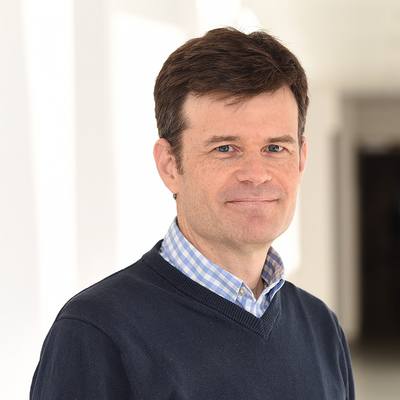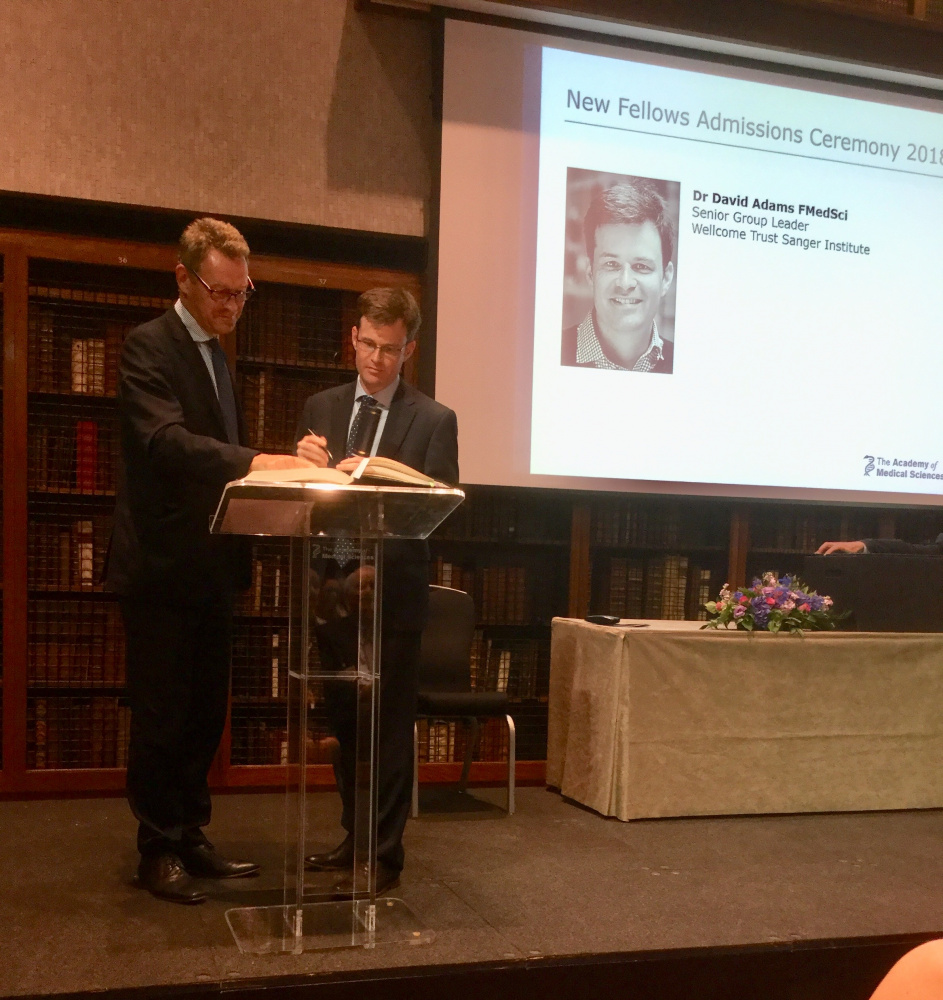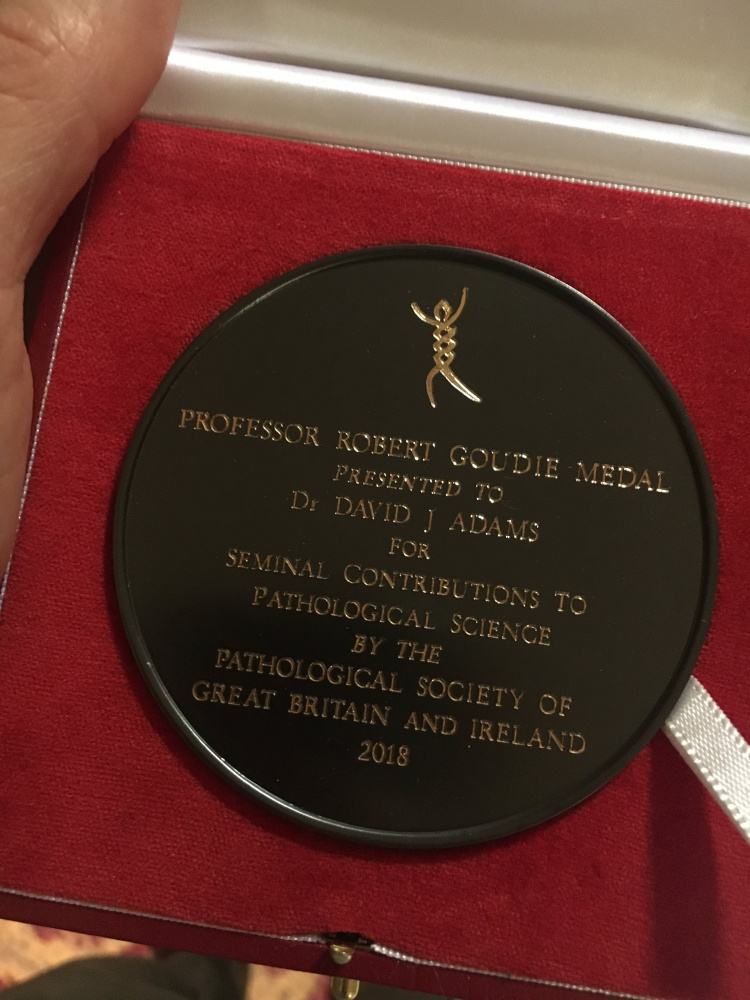
Dr David Adams
Interim Head of the Somatic Genomics Programme and Senior Group Leader
Expertise
David’s expertise is in high-throughput functional genetic screens in human cells and mice, cancer genetics and computational biology.
Research Focus
David’s research is currently focused in several areas:
- The Atlas of Variant Effects – We are using techniques such as saturation genome editing at scale to define cancer gene function.
- The Genomic Atlas of Dermatopathology – The genomic atlas of dermatopathology brings together a group of world-leading pathologists to sequence the genomes of skin cancers to define drivers and mutational processes. We also use single cell methods such as spatial transcriptomics.
- Combinatorial CRISPR Screening – Using CRISPR to define synthetic lethal genes with a particular focus on identifying new cancer targets.
- Host Regulation of Tumour Growth – Defining host factors such as genes that control the immune system as regulators of tumour growth.
David’s career
Dr. Adams is a senior group leader in the Cancer Ageing and Somatic Mutation programme at the Wellcome Sanger Institute and leads the Experimental Cancer Genetics Laboratory. He a Fellow of the Academy of Medical Sciences and the Royal College of Pathologists, and a member of the Scientific Advisory Board (SAB) of the International Laboratory of Human Genome Research. He is also a founding member of the Atlas of Variant Effects Alliance, a member of the steering committee of the Society for Melanoma Research and also co-chairs Genomel (The Genetics of Melanoma Consortium). His group uses large-scale genomic studies and genome editing to identify cancer genes and explore their function.
Dave is co-head of the Sanger Excellence Programme for Black British scientist and is involved in advocacy efforts for cancer genetic studies in LMICs, particularly with Latin American countries, work which is funded by the MRC and Royal Society.
Outside of work Dave is a keen distance runner (10Km and half Marathons), a consumer of copious quantities of coffee and a failed vegetarian.
Achievements
Additional achievements:
David has graduated more than a dozen PhD students and more than 50 students and postdocs have trained in his lab, many of whom are now running their groups around the world or working in industry or as consultants in the NHS. He has published more than 350 papers including papers in journals such as Nature, Cell and Nature Genetics.
My timeline
Goudie Medal (Pathological Society)
F.Med.Sci
International Laboratory of Human Genetics scientific board
Brain Tumour Charity scientific board
Co-lead Cell & Molecular Biology (Cambridge Cancer Centre)
ERC Synergy Grant Funding with the NKI
Senior Group Leader
CR-UK Senior Fellow
Group Leader
CR-UK Career Development Fellow
Joined the Sanger Institute as a postdoc
PhD University of Sydney
B.Sc (Hons) University of Technology, Sydney
Quick links
My publications

David Adams becomes a Fellow of the Academy of Medical Sciences
